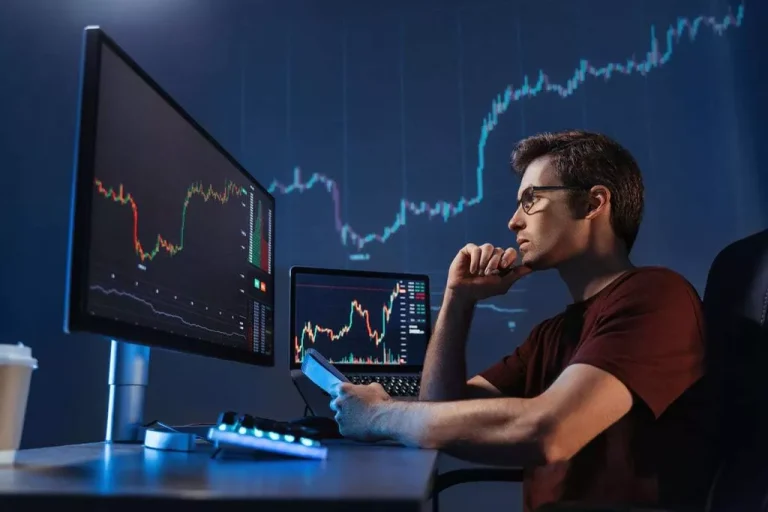Content
Use this guide to find out how to trade commodities, forex, shares, indices and more on the spot. Broker If you follow the cryptocurrency space from time to time, you would have come across two different terms from time to time — spot and derivative. Both “Spot” and “Derivative” are forms of trading which allows investors to book profits. In OTC spot markets, participants should evaluate the counterparty to reduce counterparty default risk. By understanding the mechanics of the market, it is easier to mitigate spot risks that may emerge.
Crypto Trading: Spot vs Derivatives:
We have previously looked at the options for changing trading strategies in order to take advantage of additional volatility and the impact that this will have on margin requirements. We considered trading alternative markets, for example moving from European to US Power and also switching from financial to spot vs derivatives physically delivered products. You can attach stops and limits to your open positions on our spot trading platform. These can help you mitigate your risk by minimising losses and securing profits. The volatility of financial markets can affect emotions when trading in spot markets. It is, therefore, important to manage these emotions to ensure a successful trade.
How does derivative trading work?
Understanding the distinctions between spot and derivatives trading is imperative for anyone looking to find success in the changing and often turbulent arena of cryptocurrency trading. In this article, we will https://www.xcritical.com/ focus on the primary differences between these trading approaches, helping you make informed decisions on your trading journey. StoneX Financial Inc. (“SFI”) is a member of FINRA/NFA/SIPC and registered with the MSRB. Securities and Exchange Commission (“SEC”) as a Broker-Dealer and with the CFTC as a Futures Commission Merchant and Commodity Trading Advisor.
Cash Market: Definition Vs. Futures, How It Works, and Example

Additionally, spot exchanges are more affordable, where the only payable fees are charged upon transactions. Also dissimilar to Spot trading, buying derivative contracts doesn’t require you to actually hold any Cryptocurrency, which can be favourable in certain cases such as tax and crypto custody. Spot is often seen as the more traditional and most straightforward way to invest in cryptocurrency, as it allows investors to directly own and use digital assets.
Please note that spot markets are referred to as ‘spot’ or ‘cash’ on our platform. Over-the-counter (OTC) is a place where buyers and sellers meet to trade bilaterally through consensus. There is no third-party supervisor of a transaction or a central exchange institution to regulate the trade. Assets being traded may not be standardized in terms of quantity, price, or other terms, as is the norm on organized exchanges. However, it is important to note that the notional value of a derivative contract is not the same as its market value. The market value of a derivative contract can be much lower than its notional value, depending on the price of the underlying asset.
In contrast, derivative contracts, such as futures and options, are based on the future value of an asset and are settled at a later date. Derivatives trading is when you buy or sell a derivative contract for the purposes of speculation. Although the futures market permits traders to hedge their position, the liquidity on exchanges makes speculating for profits more attractive. In futures, investors can either go long (buy) or short (sell); it all depends on their view of the market. Selecting between spot and derivatives trading depends on various factors, including your investment goals, risk tolerance, and market experience. For new investors or those looking for a more straightforward and lower-risk approach, spot trading may be the better choice.

This includes keeping an eye on the underlying asset’s price and any relevant news or events that could affect the market. Several exchange platforms are available for trading crypto derivatives, such as BitMEX, Kucoin Futures, and Binance Futures. Each platform has fees, trading limits, and a user interface, so choosing one that suits your needs is quite important. Derivatives markets are often opaque, meaning it can be challenging to determine the true value of a contract or the level of risk involved. This can make it difficult to accurately price a derivative, leading to market inefficiencies and increased risk. The buyer of the option pays the seller a premium, and the seller keeps the premium regardless of whether the option is exercised or expires.
Spot trading is the method of buying and selling assets at the current market rate – called the spot price – with the intention of taking delivery of the underlying asset immediately. Spot market trading is popular among day traders, as they can open short-term positions with low spreads and no expiry date. We want to clarify that IG International does not have an official Line account at this time. Therefore, any accounts claiming to represent IG International on Line are unauthorized and should be considered as fake.

Trades that occur directly between a buyer and seller are called over-the-counter. The foreign exchange market (or forex market) is the world’s largest OTC market with an average daily turnover of $7.5 trillion as of April 2022. Buyers and sellers create the spot price by posting their buy and sell orders. In liquid markets, the spot price may change by the second or even within milliseconds, as orders get filled and new ones enter the marketplace.
- Crypto derivatives vs spot trading have different business settings and motivations.
- Futures contracts are agreements where a buyer (taking a long position) and a seller (taking a short position) decide on a price now for something they’ll trade in the future.
- One of the main benefits of derivatives contracts is that they provide greater flexibility and the chance for more sophisticated trading strategies.
- Likewise, for every point that the oil price appreciates, you’d make a $100 loss.
- The simplicity of spot contracts also contributes to their transparency, as both parties clearly understand the terms of the transaction.
Futures are derivative contracts that allow traders to buy or sell an underlying asset at a specified price at a future date. They provide an obligation to buy or sell the underlying asset, and when a futures contract is entered into, both parties have a binding obligation to fulfil the terms of the contract. Futures allow traders to lock in a price today for an asset they will buy or sell in the future, helping to mitigate the price risk that comes with fluctuating market prices. Traders buy and sell derivatives to profit from anticipated price changes in the underlying asset. Producers and consumers use derivatives to hedge risks by taking opposite positions in the physical and derivative markets to lock in prices or values. Forwards and futures are derivatives contracts that use the spot market as the underlying asset.
If the exchange’s price does go up by 5 points, you’ll make a profit of $500 ($100 x 5 points). For example, you can use leverage to take a position on an index futures contract at a fraction of the cost of the actual asset. But, trading with leverage increases your risk as you stand to lose more than your margin amount.
With commodity roots dating back a century, StoneX covers a range of solutions for nearly every publicly traded commodity in the world, including dairy, grains, metals, plastics, energy and more. Benefit from pre-trade analysis, post-trade monitoring and custom recommendations for managing your positions throughout the life of your trades. We’ve explored various ways to firms can take advantage of increased volatility, but the Spot market may offer the best opportunity. In this article, we cover everything about Spot markets—how margin is calculated, why it’s hard to replicate, and how it affects margin requirements. IG International Limited is licensed to conduct investment business and digital asset business by the Bermuda Monetary Authority.
However, first of all it is important to understand if there is a causal link between the introduction of derivative instruments and the volatility of the underlying stock market. A derivative market refers to the financial market where derivative instruments such as futures, options, and swaps are traded. The derivative market enables trading in derivative contracts that often influence and depend on movements in the markets for the underlying physical assets. Derivatives are financial contracts whose value is derived from an underlying asset such as a commodity, bond, equity or currency.
If the asset market price is lower than the contracted price, the buyer can choose not to activate their right and decline the purchase. Participants may agree to trade Bitcoin at $50,000 on a specific date, regardless of the market price, during the signing of the contract or on the execution date. This software involves a matching engine that fulfils orders according to predetermined conditions.